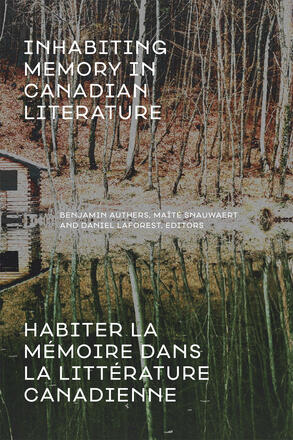
Inhabiting Memory in Canadian Literature / Habiter la mémoire dans la littérature canadienne
Description
This book examines the cultural work of space and memory in Canada and Canadian literature, and encourages readers to investigate Canada within its regional, national, and global contexts. It features seven chapters in English and five in French, with a bilingual introduction. The contributors invite us to recognize local intersections that are so easily overlooked, yet are so important. They reveal the unities and fractures in national understanding, telling stories of otherness and marginality and of dislocation and un-belonging.
Ce livre examine l’importance culturelle de l’espace et de la mémoire en contexte canadien et plus spécifiquement dans les littératures du pays, afin d’inviter des lectures neuves des questions régionales, nationales et globales. Il rassemble sept chapitres en anglais et cinq en français, en plus d’une introduction bilingue. Les contributions, favorisant des approches thématiques et théoriques variées, sont réunies par leur désir de mettre en lumière des croisements inédits entre la mémoire et l’espace en tant qu’ils définissent certains des problèmes les plus brûlants de notre époque au Canada. S’y révèle l’équilibre fort instable entre récits unitaires et fractures communautaires, entre altérité et marginalité, ou entre dislocation et désappartenance.
Contributors / Collaborateurs: Albert Braz, Samantha Cook, Jennifer Delisle, Lise Gaboury-Diallo, Smaro Kamboureli, Janne Korkka, André Lamontagne, Margaret Mackey, Sherry Simon, Pamela Sing, Camille van der Marel, Erin Wunker
Awards
- Runner-up, Gabrielle Roy Prize - Association for Canadian and Quebec Literatures 2018
Reviews
"This excellent scholarly collection includes seven essays in English and five in French on various facets of the relationship between space and memory.... The book will be of interest not only to scholars of Canadian literature, but also to those of postcolonial and diasporic literatures.... [This] book serves as a valuable challenge to scholars in both languages to deepen our understanding of Canada’s literary past in both ways."
- Laurel Ryan